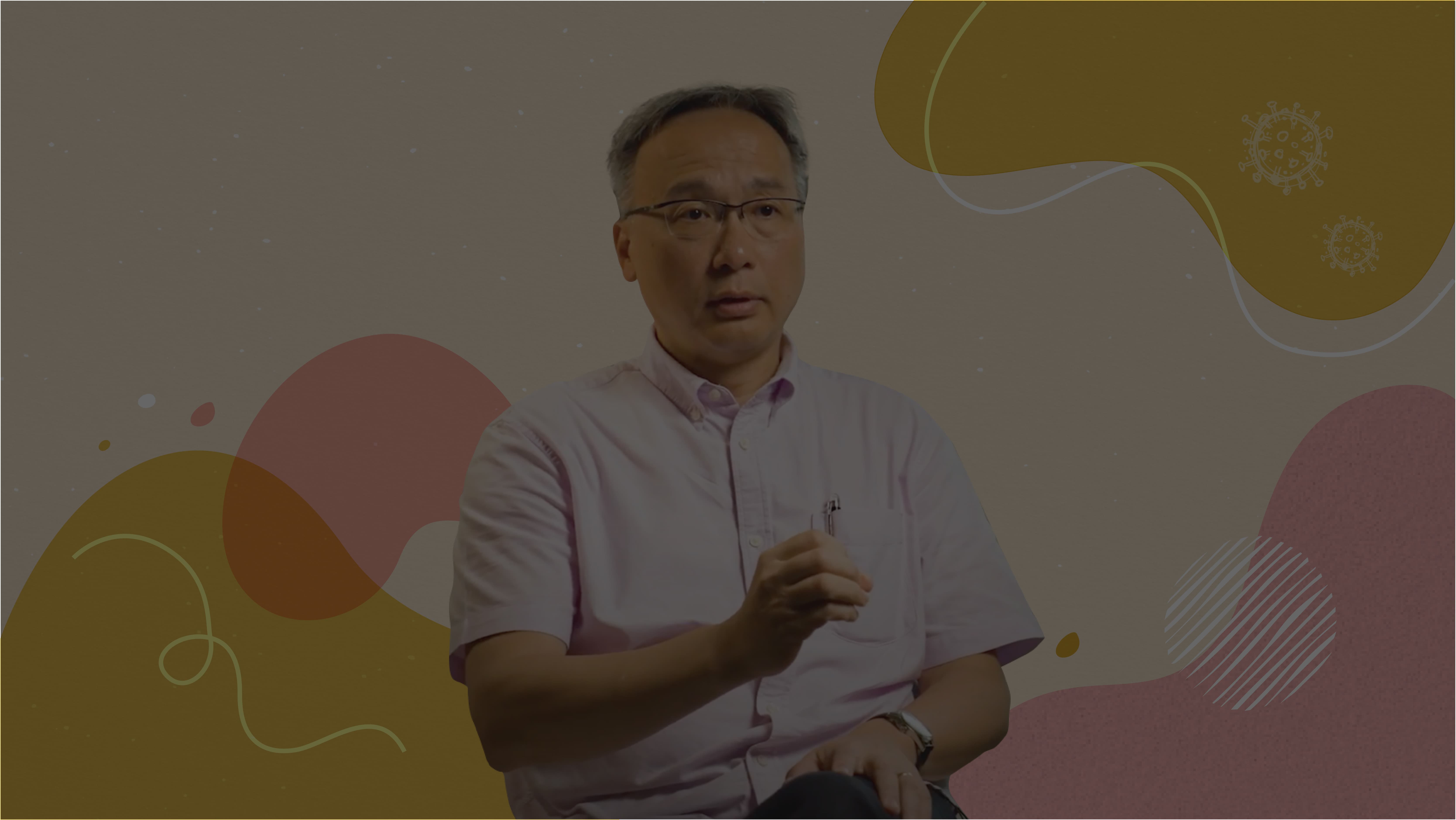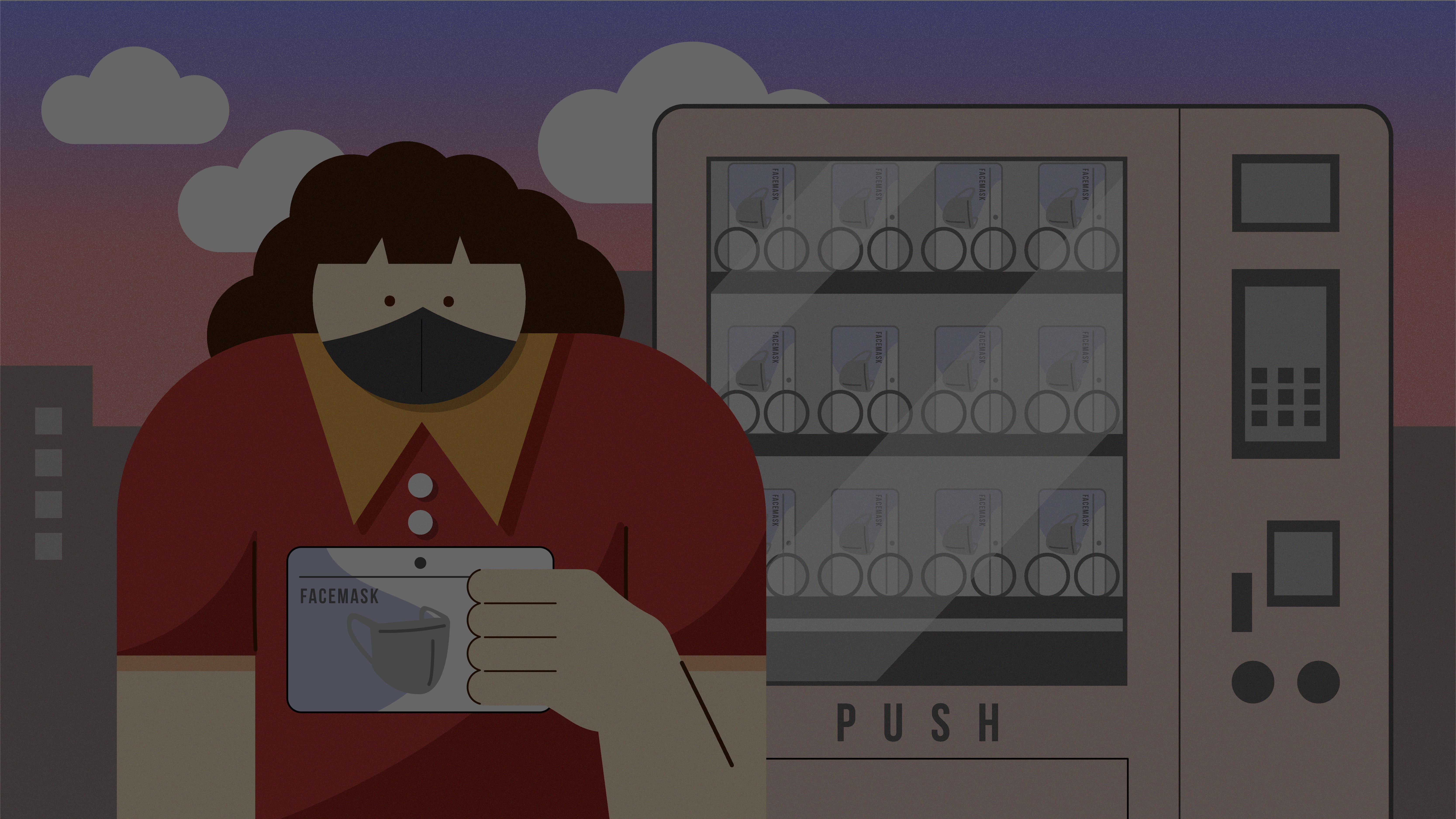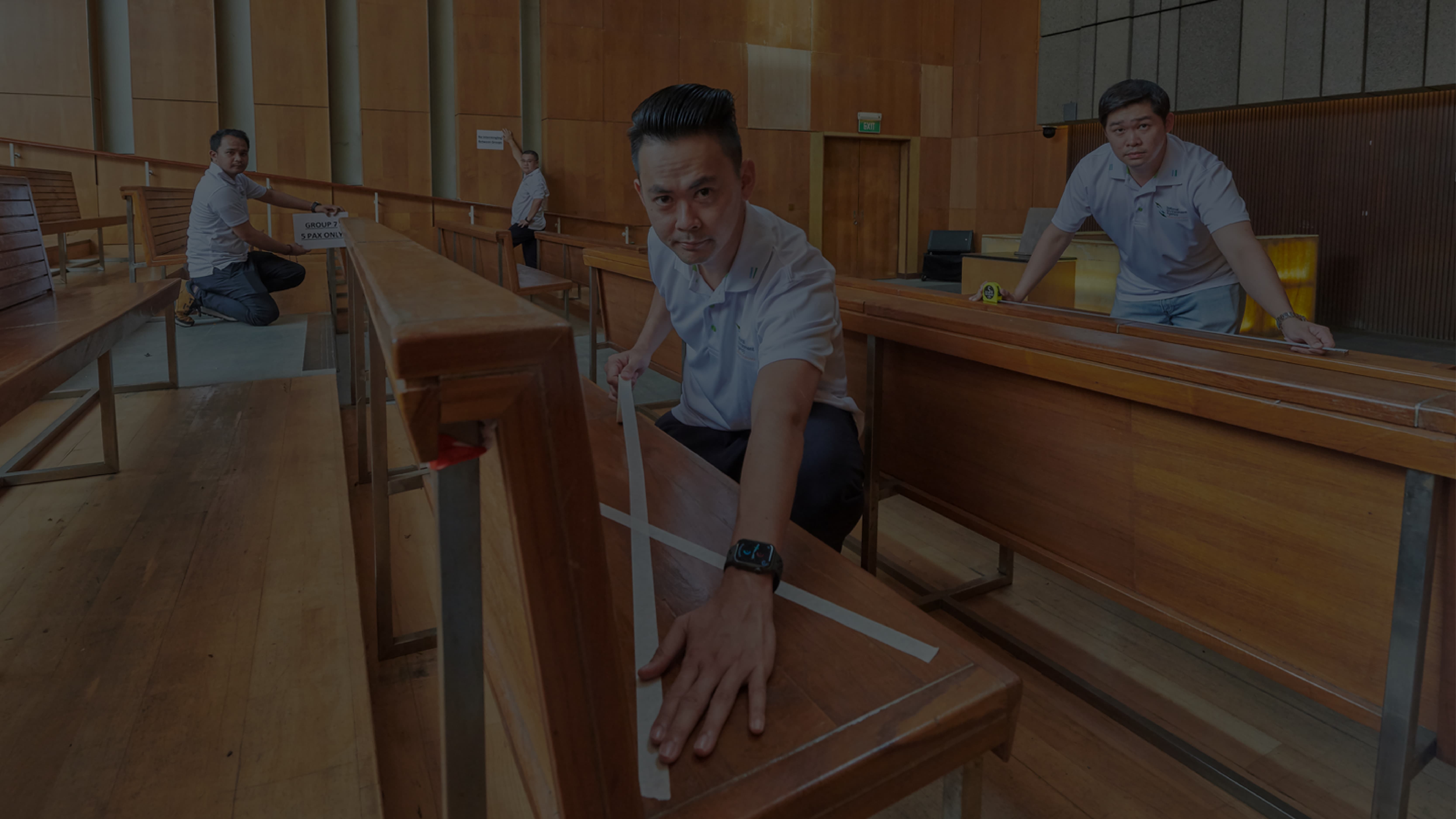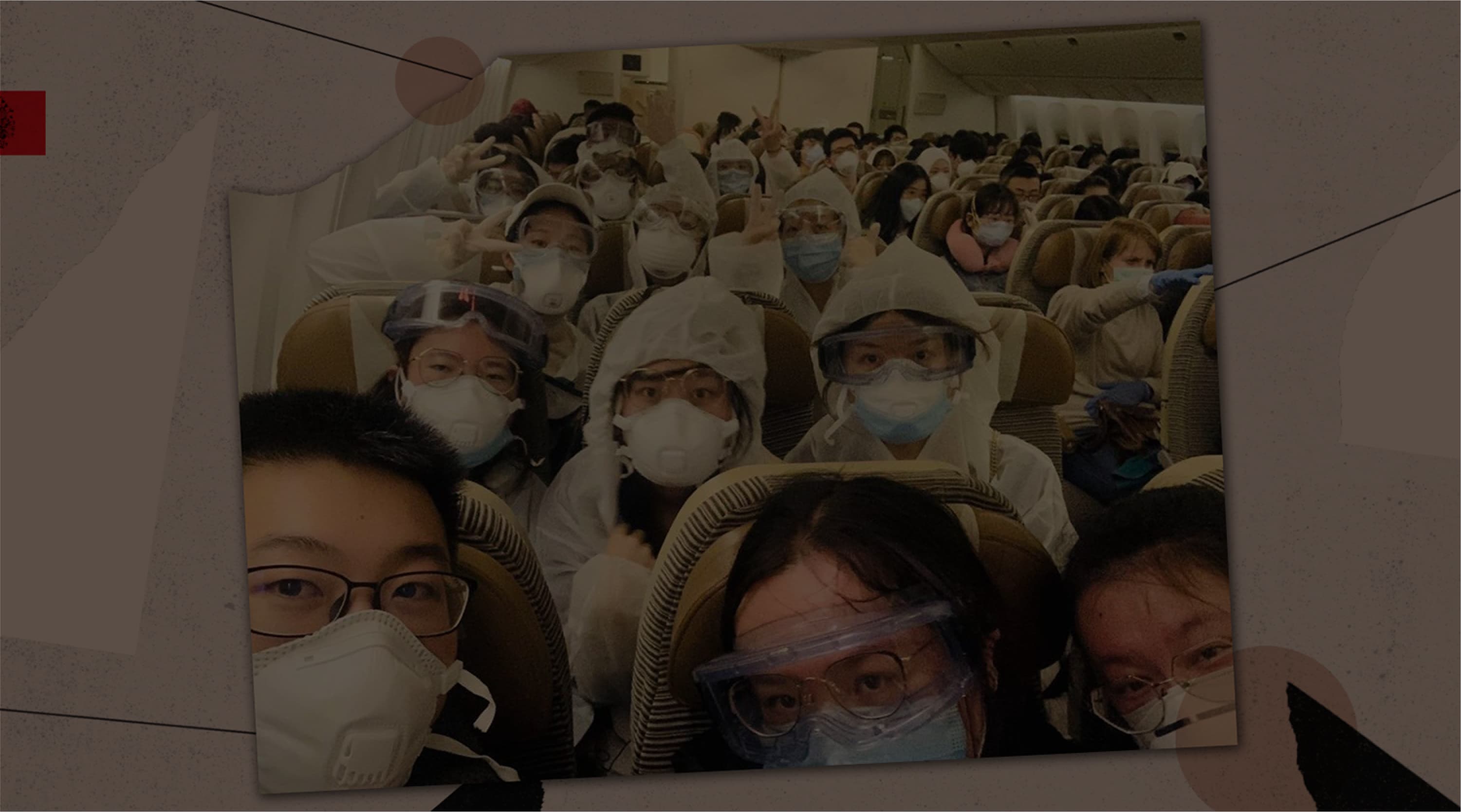COVID-19: Caring For Our Migrant Workers
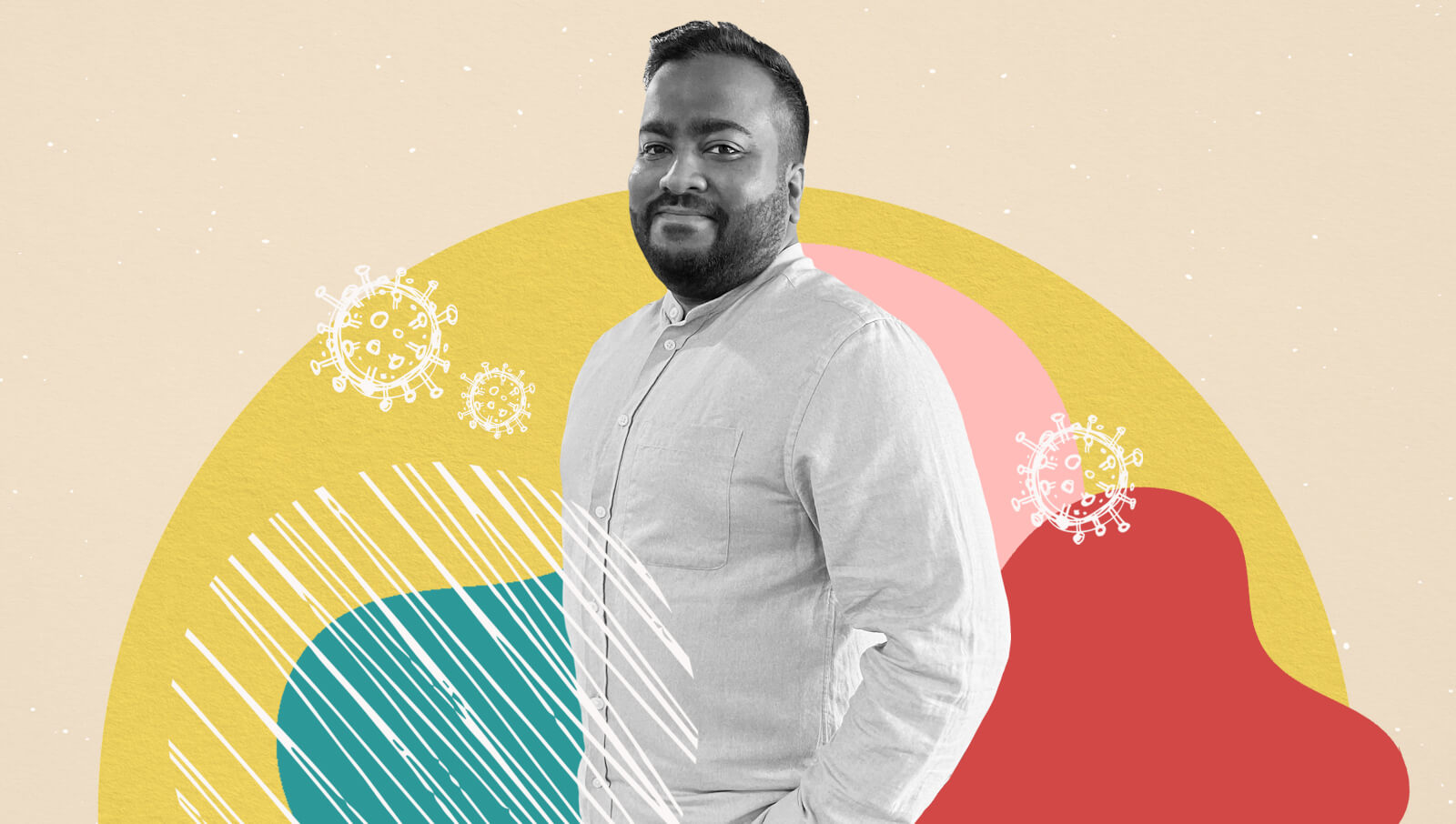
The COVID-19 pandemic has brought mental health issues to the fore. For this season of The Challenge Podcast, we kick things off with a chat with two officers involved in the development of an online mental health resource that seeks to go beyond just dealing with stresses from COVID-19. Transcripts have been edited for clarity and language.
Transcript
Host: Tajuddin Marhim
TAJUDDIN: Welcome to this special edition of the Challenge podcast. I’m your host, Tajuddin Marhim, and I’m a development partner for enterprise services at Enterprise Singapore.
In response to the pandemic, my team and I were tasked to set up the COVID-19 Contact Centre to address enquiries from businesses and members of the public.
And this edition of the podcast takes a special look at how the Singapore Public Service responded individually and collectively to the COVID-19 pandemic, and the lessons we learnt along the way.
For this series, we will be speaking to some officers who have contributed in one way or another to ensure the health and safety of every person in Singapore.
As the number of infections grew in Singapore in the first half of 2020, one group that found itself particularly vulnerable was the migrant workers.
In this episode, we speak with Simon Salomon, a Senior Housing Officer at the Ministry of Manpower (MOM). He tells us how the pandemic impacted the work he does with the migrant workers, and his hopes for them as efforts continue to contain the spread of the virus.
Hi, Simon, thanks so much for joining us today.
SIMON: It's a pleasure. Thank you for having me.
TAJUDDIN: How did you end up being a Senior Housing Officer?
SIMON: I was part of the Ministry of Education (MOE)'s temporary housing site team for migrant workers who were in between dormitories. I found a passion for working with migrant workers and finding out more about them and their lifestyles. I wanted to find a way to impact their lives more.
So I started looking for jobs that could help in that way, and the search led me to this job as part of the Assurance Care and Engagement (ACE) group at MOM.
I’m able to assist the workers in their housing needs, which is in their dormitories, and finding ways I could impact them in their dormitory lifestyles. We are there on the ground to support them.
TAJUDDIN: At which stage of the pandemic did you become a housing officer? What was the situation with the dormitories then?
SIMON: I joined during the post-Joint Task Force phase. The dormitories were in a relatively better position, so the cases were better, the kind of standards of the living measures were much better.
The increasing trend that we spotted at the time had to do with mental health.
We had to focus and help them with the situation they were living in and ensure that they got the support they needed, especially when they couldn't see their families for quite a long time already, and could only reach them over the phone.
TAJUDDIN: Could you share more about the kind of mental health issues the workers were facing, especially since movement was rather restricted for them at that point in time?
SIMON: In the past, the most common issues were employee issues, things to do with their pay, and stuff like that. They had more ways to relieve their stresses by going out and meeting friends, for food, just to hang out.
But during the pandemic and the lockdown, some of the things that we saw were many of them getting more stressed, especially because they were not able to see their families for a long period of time.
I even met one worker who had returned to Singapore when his wife was pregnant. Then the pandemic meant he could not go back to witness the birth of his child, who is probably one to two years old now. And he still hasn’t been able to go back.
Many of them used to frequent gyms outside when their dormitories did not have such facilities. Now they are used to mostly running around the dormitory compounds or doing their basic exercises within their rooms. So I think this has affected their mental health a lot.
TAJUDDIN: How big of an issue was language when you interacted with them?
SIMON: The dormitory I was posted to, and the dormitory I'm currently posted to as well, is made up mostly of Indian nationals. So I was able to talk easily with them, communicate easily with them. But even then, there are different dialects in India, so not all of them are able to understand what I’m saying, or they just pick up basic words.
The other thing I do is to give my colleagues classes on words and sentences they could use with the workers. And they were able to pick up basic words like anneh, which is “elder brother”. In that way, they are able to build a better rapport with the workers.
The other thing we do is use body language, like greeting them with a smile. So even if the workers are not able to pick up or understand what we are saying, they will at least know that we are there to help them. And we try to gather as much as possible based on their body language.
Having an interpreter around is even more helpful. The dormitory I am currently posted to is home to workers from Myanmar, Thailand, Indonesia, Malaysia, India and Sri Lanka. And we have dormitory supervisors who are able to help us translate some of their spoken languages.
TAJUDDIN: What else do you and your team do to engage with what seems to be a very diverse community in the dormitories?
SIMON: My team and I have been trying to step up efforts through what is called the FACE team of volunteers, which refers to the Friends of ACE. We noticed that some of the workers are more vocal and have a tendency to help other workers, or their colleagues. We know that they will be able to help us impact their roommates or help us in other ways as well. So we try to recruit them into being FACE volunteers. We get them to help us pass on messages, or when we are doing any activities, they will help us to run the event and stuff like this.
TAJUDDIN: What are some of the things that you have learnt from your interactions with the workers?
SIMON: I would say one key thing is the importance of sacrifice. Looking at them and the hours they put into their jobs, the sacrifices they have made, and what drives them to face all their challenges head-on has been a great takeaway for me. I did not know much of this before I got into this job. But in this job, I'm able to see the sacrifices and learn more about the situations they face more clearly.
The dormitories under my care are within the Port Authority of Singapore. The jobs and the environment that they work in are quite risky, because the workers have to go onto foreign vessels that come into our port. Many of them have to climb on top of containers. They do have their safety and checks, they do have all the harnesses and everything. But they still face a considerable amount of risk while doing their jobs. But I think one of the main things that they have in their minds is the image of their loved ones back home – the ones they are making these sacrifices for.
Another lesson that is a great takeaway for me is about the joy that they can find in every situation. Many of them, as you might know, were within their dormitories for a long period of time, and I've seen how they have spread so much joy within their own rooms. They have been able to talk and share meals with each other.
I know of this group of workers at one of the dormitories who make it a point to ensure that on the first of their two days off, they have lunch together. This is something very close to their hearts. During their lunch sessions, they chat, they laugh and joke around, watch the latest TikTok videos – stuff like that.
So no matter what they face, no matter what kind of risk they might face at work, the small joys these lunch sessions bring helps them de-stress, and ensure that they go back to work with the right mindset.
TAJUDDIN: It would be good for the listeners to know about the challenges you face: how do you overcome them?
SIMON: I think one key issue that I've picked up from day one is about a lack of trust between certain workers and myself or other officers within my team. Because some of them might see us as authority figures, they might not willingly come forward to share their worries with us. Due to this misconception, many of them fear opening up to us fully.
My team and I have this priority of going around and engaging the workers, no matter how busy we get. It allows us to find out the mood on the ground, the concerns they might have. But not all of them are forthcoming. Some might just smile and say, “Oh, everything's okay,” even though some issues might be troubling them. Breaking that barrier of seeing us as authority figures is something that is a big challenge for me and for my team.
TAJUDDIN: A story, maybe, that you can share with us on how you and your team responded to their needs?
SIMON: One story that's very close to my heart, and I'm sure it applies to my team as well, is about a worker living in a dormitory under our care. He works onboard foreign vessels, and his job is to climb onto these ships and help remove containers onto the ground.
One time, this worker had a very bad fall. It affected his hip very badly and he had to undergo hip replacement surgery. In the process of his recovery he went through a lot of hospital time. He was out of work for some time, and then he came back to the dorm and he was still going through recovery.
We initially learnt about his case from the dormitory management. So we wanted to approach him and find out how he’s doing, whether he’s facing any issues, and if there was any way we could help him. Initially, he was very hesitant to say anything. He was afraid that we would take some kind of action against him, or that he would be sent back [to his home country], and his rice bowl would be affected, which was not the case at all, but this is kind of the mindset that he had.
We talked to him as many times as possible and eventually found out he did not have a mattress. When he first arrived at the dormitory, the management office did give him one.
But he and some of his roommates found it quite warm to sleep on the mattresses. So what they did was to return them and sleep on the board on the bed frames. That, or they would spread a bed sheet on the floor because they found it more comfortable and cooling at night. But because he was recovering from his hip replacement surgery, he was not able to sleep properly at night. He just had to sleep in one position, he could not toss and turn, it caused him a lot of pain.
So we went to the dormitory office to see if there were spare mattresses for him. We found a few and brought one up.
The other thing we noticed was that his fan was not working properly. The dormitory rooms have a couple of ceiling fans, and each worker has their own personal standing fan as well. But because the plug for this particular worker’s fan was not working properly, it would keep losing power from time to time.
So we looked for plugs to replace the faulty one. And luckily, some of my teammates have an engineering background, so they were happy to help. So this worker was very touched and thanked us from the bottom of his heart. He said he was very happy, being able to sleep properly.
Many of them are facing this kind of issues, but they're not willing to open up.
And he was waiting for his insurance claim to come through. During that period, he had to stay in Singapore, so we were trying to assist him in all ways.
We are very happy because a few weeks ago, we saw him outside the office waiting to give us a word of thanks. He was going to go back to India soon because he had everything settled, and he wanted to thank us for the effort that we had put in, in assisting him during his time over there.
It's these kinds of stories, these kinds of situations, that really push us to go further and further, go out of our way to try as much as possible to change something in some way.
TAJUDDIN: What we can do to show our support for the migrant workers?
SIMON: I think the main thing that we can do as Singaporeans is to give them the acceptance. I feel that many of them, when they re-enter society, they might feel a bit alienated because they have been away for so long.
So if you see any of them around, just give them a smile, or some small gesture that would go a long way in brightening up their day, to make them feel welcomed. We can also educate those around us about migrant workers and the kind of situations they face.
TAJUDDIN: You've talked a lot about the kind of support that you and your team have been given. What was your personal support system like, given that you are at the forefront of this situation?
SIMON: That fear of the unknown is very much alive. My parents, my sister, my fiancé – they were fearful because they did not know much about the job scope. And when I joined ACE, they knew that I would be working more on the ground, more hands on, with the migrant workers within the dormitories.
But I think over time, they saw that I had support from my fellow teammates, my colleagues and superiors, they know we are taken care of and at the same time, our safety is a priority.
So now they are more calm, because they know I'm not at risk; they know my teammates and I take steps to ensure that we are protected at all times. And it is a great relief for them.
So that support system is always there for me. For example, when I was young, my dad taught me about this concept of a simple smile going a long way. So whatever I'm doing, whether it’s a big or small thing, I must have that kind of positive mindset.
But the support system is very essential for that positive mindset.
TAJUDDIN: Any last words for our listeners?
SIMON: Next time you see any workers in your neighbourhood, just have that smile, greet them and accept them. They are going back into the community, things are opening up, do accept them, do help to educate others. And if you do not have ways to help them, seek out the relevant channels to bring that assistance to them.
TAJUDDIN: It's been a fantastic session, Simon. I'd like to thank you for joining us today.
I’m your host, Tajuddin Marhim. For more stories on the Singapore Public Service’s COVID-19 response, go to psd.gov.sg/challenge.

To hear more conversations like this, follow the Challenge Podcast on Spotify.
- POSTED ON
Jul 6, 2022
- TEXT BY
Keval Singh
Siti Maziah Masramli




